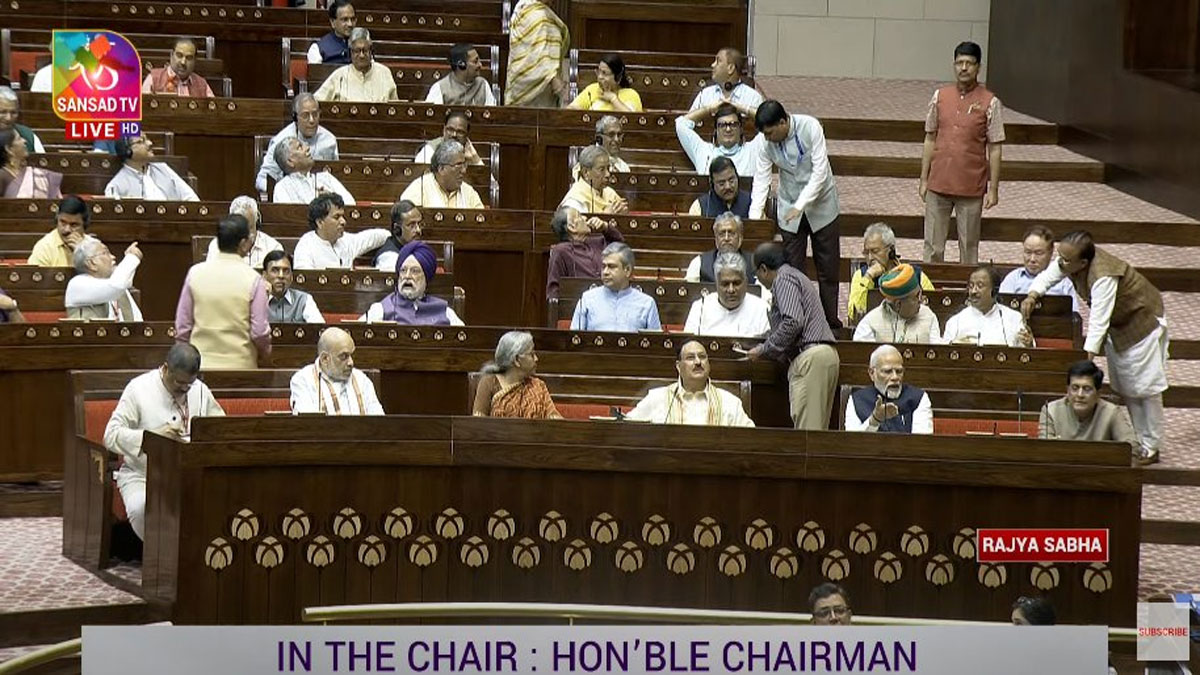Rajya Sabha On Thursday unanimously approved the women’s reservation bill after an extensive 11-hour debate. The Lok Sabha had already passed the bill on Wednesday. Now, the legislation enforcing a 33% reservation for women in Parliament and state assemblies will become law, but its implementation will occur after the completion of the census and delimitation processes, a point of contention raised by the Opposition.
Prime Minister Narendra Modi delivered a speech in the Rajya Sabha just before the vote:
In his address, PM Modi expressed his optimism about the bill’s potential to instill fresh confidence in the nation.
He commended all members and political parties for their substantial contributions towards empowering women and bolstering ‘Nari Shakti’ (women’s power).
He urged everyone to send a robust message to the country through their collective support for the bill.
However, similar to the Lok Sabha, the key point of contention in the Rajya Sabha today centered around the implementation timeline. The bill’s implementation is contingent on the completion of the census and delimitation processes, which could potentially delay it by approximately six years. The INDIA bloc supports immediate implementation rather than waiting for the mandatory census and delimitation procedures to conclude.
Read More: The Women’s Reservation Bill: A Decades-Long Struggle For Gender Equality
In the Lok Sabha, only two MPs from the AIMIM opposed the bill. Notably, this is the first bill to have been passed in the new Parliament building. After its passage in the Upper House, Rajya Sabha chairman Jagdeep Dhankhar congratulated the members and characterized it as a historic achievement. He noted the coincidence that it was also Prime Minister Modi’s birthday by the Hindu calendar on the same day.
Finance Minister Nirmala Sitharaman spoke about the bill, describing it as long overdue. When questioned about why the government had convened a special session of Parliament, Sitharaman explained, “We have come into a new complex, a new building for Parliament, a new India. We would like this Parliament to deal with one of the best bills that it can deal with.”
Sitharaman emphasized that the bill focuses on reserving seats for women in the Lok Sabha, and due to the indirect election process and the complexities of voting preferences, extending such reservation to the Rajya Sabha would not be feasible.
Mallikarjun Kharge raised questions during his intervention regarding the delay in implementing the bill and suggested that if Prime Minister Modi could implement currency note bans overnight, he should act similarly with regard to this bill.













